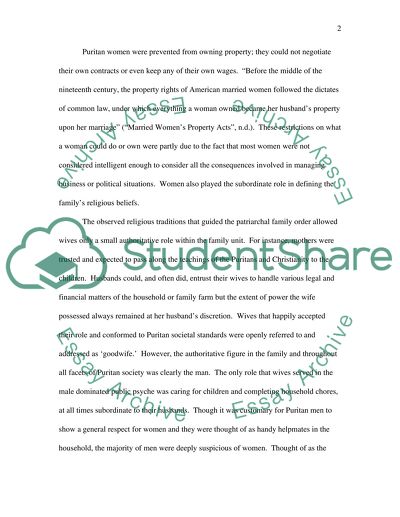Cite this document
(“Gender in the Colonial period Essay Example | Topics and Well Written Essays - 1250 words”, n.d.)
Retrieved from https://studentshare.org/gender-sexual-studies/1422072-gender-in-the-colonial-period
Retrieved from https://studentshare.org/gender-sexual-studies/1422072-gender-in-the-colonial-period
(Gender in the Colonial Period Essay Example | Topics and Well Written Essays - 1250 Words)
https://studentshare.org/gender-sexual-studies/1422072-gender-in-the-colonial-period.
https://studentshare.org/gender-sexual-studies/1422072-gender-in-the-colonial-period.
“Gender in the Colonial Period Essay Example | Topics and Well Written Essays - 1250 Words”, n.d. https://studentshare.org/gender-sexual-studies/1422072-gender-in-the-colonial-period.


